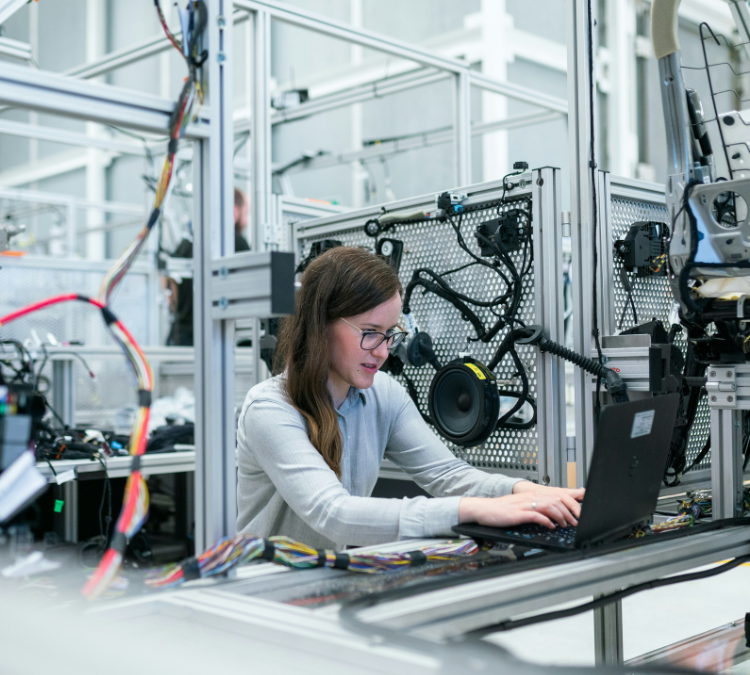Are You Thinking About Studying Computer Science? Here Are The Differences Between IT, IS, Data Science, and AI Study Program
Pursuing a degree in technology offers incredibly promising career prospects. As the field of computer science continues to evolve, new subfields are emerging, requiring a deeper understanding of specialized knowledge. So, before choosing your program, it’s crucial to understand the differences between these disciplines.
This article breaks down four study programs: Informatics, Information Systems, Data Science, and Artificial Intelligence.
Bachelor’s in Informatics (IT)
The Information Technology (Informatics) program focuses on designing and developing basic computing systems.
You’ll learn about programming logic and algorithms, equipping you with the skills to write code and engineer software systems independently.
Additionally, you’ll dive into networking topics—both wired and wireless—covering areas such as network topology, addressing, security, recovery, maintenance, and more.
At Universitas Bunda Mulia (UBM), you can specialize in Artificial Intelligence or Cybersecurity starting in your second year.
After completing foundational computer science courses in the first two semesters, you’ll begin learning how to design AI algorithms and implement data security methods from the third semester onward.
Research areas in Informatics include:
- Autonomous and Cyber-Physical Systems
- Bioinformatics and Computational Biology
- Computer Architecture
- Computer Graphics
- Human-Computer Interaction
- Machine Learning and Data Science
- Networking and Operating Systems
- Software Engineering and Security
Bachelor’s in Information Systems (IS)
Information Systems bridges human activities with technology. It involves creating systems to collect, store, manage, and distribute information within organizations.
An information system integrates multiple components, such as hardware, software, databases, management procedures, and the personnel operating them.
For instance, a Sales Force Automation (SFA) system helps sales teams manage orders, track activities, and maintain contact management seamlessly.
In the Information Systems program, you’ll learn how IT can support business goals, analyze data for actionable insights, understand ethics and laws around technology, and more.
Graduates can pursue roles like Enterprise Architect, Information Systems Analyst, Business Software Developer, or IT Auditor.
Bachelor’s in Data Science
Data Science combines mathematics, statistics, programming, artificial intelligence, and machine learning to solve business or organizational problems.
In simple terms, data scientists turn massive raw datasets into valuable insights.
Given the volume of data they manage, traditional tools like Excel or spreadsheets are inadequate. Data scientists rely on programming languages like Python and R to handle tasks efficiently.
At UBM’s Data Science program, you’ll explore courses such as:
- Data Science Statistics
- Data Structures and Algorithms
- Data Science Mathematics
- Python Programming
- Database Systems
- Data Analytics
- Machine Learning
These courses prepare you for careers as an Applied Data Scientist, Analytics Specialist, Machine Learning Engineer, or Large-Scale Data Architect.
Bachelor’s in Artificial Intelligence (AI)
Artificial Intelligence mimics human intelligence through computer systems. AI aims to provide solutions in diverse areas, such as infrastructure, education, and the economy.
AI works by absorbing vast amounts of data, analyzing it to identify correlations and patterns, and using these patterns to predict future outcomes.
You’ll study topics like:
- Computer Vision
- Machine Learning
- Generative AI
- Large Language Models
- Responsible AI
- Smart Systems
With a Bachelor’s in AI, you can pursue roles such as AI Specialist, AI Analyst, Machine Learning Engineer, or AI Software Engineer.
Faculty of Technology and Design at UBM
UBM’s Faculty of Technology and Design offers diverse programs, including:
- Informatics
- Information Systems
- Data Science
- Artificial Intelligence
- Visual Communication Design
- Interactive Design
For admission details, contact us at:
Ancol Campus
Jalan Lodan Raya No. 2, North Jakarta 14430
Tel: 021 690 9090
Serpong Campus
Jalan Jalur Sutera Barat Kav. 7-9, Alam Sutera, Tangerang, Banten 15143
Tel: 021 8082 1428
Find us on social media:
Instagram | YouTube | TikTok | WhatsApp
Universitas Bunda Mulia: Bridging Education to the Real World! ✨
References:
READ MORE


